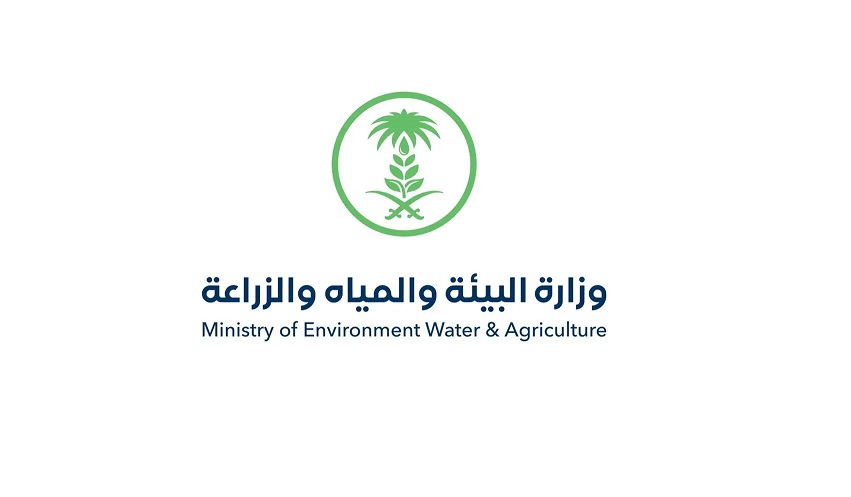
Environment Ministry Achieves Remarkable Results, Unprecedented Records in Water Sector
The Ministry of Environment, Water and Agriculture has achieved remarkable results and set unprecedented records in various water sector projects by adhering to the National Water Strategy and its executive regulations, solidifying its global leadership in desalination as the top producer with an annual capacity of 4.19 million cubic meters.
The ministry also operates the most extensive network of water transmission pipes, covering 14,210 kilometers and managing 19.42 million cubic meters of water daily, demonstrating the ongoing progress and resilience of the country's water sector infrastructure.
The objectives of the Water Strategy, which provides a comprehensive national roadmap to ensure the sustainable use of water resources, include enhancing the benefits of utilizing renewable and recycled water, guaranteeing a safe and high-quality water supply, and delivering efficient services to support economic development and GDP growth.
Through the implementation of this strategy, the Kingdom has broken multiple Guinness World Records, such as the most extensive network of drinking water tanks with a capacity of 8.9 million cubic meters daily, the largest drinking water storage facility in Riyadh with a daily capacity of 4.79 million cubic meters, and the largest production facility by capacity, producing 2.99 million cubic meters daily. The Kingdom also set the record for the largest drinking water storage tank in Riyadh with a capacity of 3 million cubic meters, the largest evaporation desalination unit in Saudi Arabia with a capacity of 92,000 cubic meters daily, and the world's largest mobile desalination plant, with a capacity of 50,000 cubic meters per day.
Additionally, the Kingdom boasts the lowest energy consumption in desalination plants, measured at 2,271 kWh per cubic meter.
In 2024, the National Water Company (NWC) completed 36 water service projects at a total cost of SAR992 million. These projects contributed to the installation of main lines and networks, covering 894,000 linear meters.
Furthermore, the company constructed 29 reservoirs with a combined storage capacity of 109,500 cubic meters, as well as a purification station capable of processing 5,000 cubic meters per day and pumping stations with a total capacity of 546,080 cubic meters per day. The company plans to complete 31 additional projects, valued at SAR2.14 billion, during 2025. In the sanitation services sector, 12 projects were completed at the cost of SAR1.2 billion.
These projects resulted in establishing lines and networks covering 293,000 linear meters. Moreover, sewage treatment plants were developed to process 52,000 cubic meters per day, along with lift stations with a total capacity of 277,700 cubic meters per day. Plans are underway to finalize 26 additional projects valued at SAR1.83 billion by the end of 2025.
The NWC has implemented 17,381 new sewage connections as part of the Home Sewerage Connections Project. Meanwhile, 15 stations were established to reduce salinity in the eastern sector, with 12 of them currently operational and their output being utilized effectively.
During the 2024 Hajj season, the NWC pumped over 45 million cubic meters of water through networks spanning more than 5,000 kilometers. The pumping rate reached up to 24 hours per day at the holy sites and the Grand Mosque. To ensure water quality, more than 75,000 laboratory tests were conducted. Complaints during Hajj were recorded through a mobile application and the "Tarwiyah" call center, while monitoring and control of networks in the holy sites and Madinah were unified.
In a significant achievement, the Saudi Water Partnership Company contributed over 60% to local content in most of its projects throughout the contractual period, reflecting its commitment to strengthening the national economy and supporting local capabilities.
In the area of water conservation, the Ministry of Environment, Water and Agriculture, through the National Water Efficiency and Conservation Center (MAEE), achieved cumulative water savings exceeding 31 million cubic meters annually, equivalent to 86,019 cubic meters per day. These savings were realized by implementing best practices in water rationalization, applying solutions at 995 government sites, and providing leak detection services to over 21,000 beneficiaries via the electronic "Kashf" application. The financial impact of these efforts resulted in annual savings exceeding SAR143 million in government expenses.
The Saudi Irrigation Organization surpassed its targets by achieving 115% of the planned reuse of treated water in the agricultural sector during the third quarter of 2024. While the target was set at 181.19 million cubic meters annually, the actual reuse reached 390 million cubic meters. Additionally, the percentage of treated wastewater reuse reached 26.7%, exceeding the target of 22.7%.
Water Desalination, the operational arm of the Saudi Water Authority, has also achieved significant milestones in innovation, representing a qualitative leap in the desalination industry. It secured a patent for extracting divalent salts with high efficiency by developing a new system employing nanofiltration technology for wastewater treatment. Other patents included an automatic control device for collecting samples, a system to protect water intakes from marine objects and organisms, a chemical washing system for desalination operations, and a method for producing clean energy through the Water Technologies Innovation Institute & Research Advancement.








